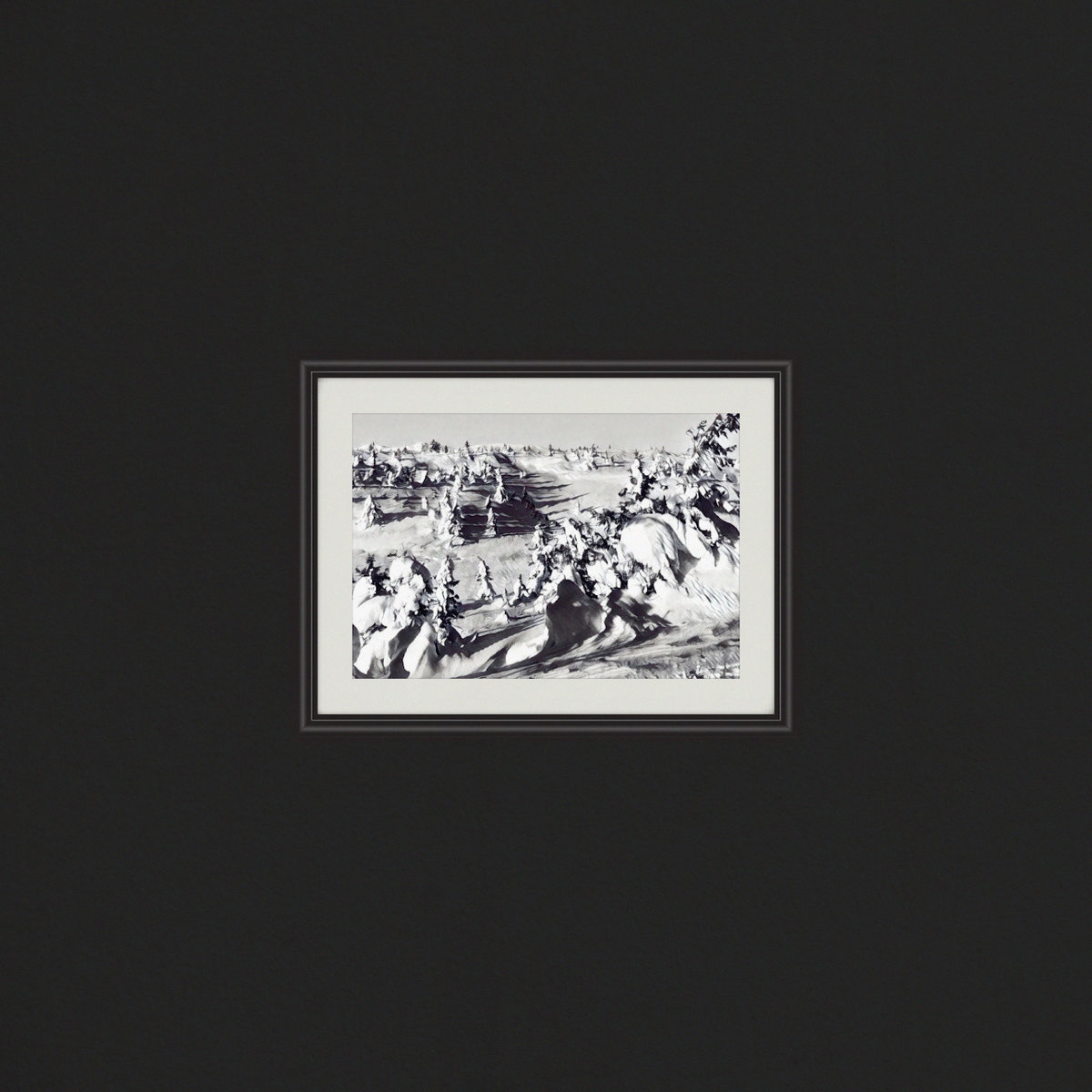Runar Blesvik seems to work best in the background. His work to date has relished in the staying of his full hand, resulting in softly cinematic music that incorporates delicately prepared piano with electronic sounds and natural ambience. It never goes to break through to the surface, instead it’s ready to be an accompaniment for a cinematic scene or to quietly fill the air in a room; his solo piano is often captured with an intimate recording technique that makes the sound of him pressing down on the keys and the sustain pedal feel like flickering flames from a warming fireplace.
With his third album, Restore, the Norwegian composer purposely tries to go outwith comfortable territory. His piano playing still stands in the centre of his tracks, but on his new album he incorporates more outside influence and instruments, and even – for the first time – vocalists. The results are curious; sometimes inventive and forward-stepping, but sometimes veering into the overdramatic and gaudy. Coming out of the background is never an entirely comfortable act (especially for a modern classical composer with an established style and tone), which Blesvik displays here.
The album is most enjoyable when Blesvik simply does what he does best, without making it seem overworked or fussed over needlessly. Opening track “By All Means” marries chilly strings to quietly rippling piano figures, bringing a sense of worry and quiet alarm. When the strings bleed like inky Max Richter movements, Blesvik shows his skill at composing without the need for theatrical flourish; the temper and movement of the strings and piano do all the work to help evoke a sense of mood and place. Likewise, “Eclipse” brings with it a haunted feel over low, murmuring strings as what sounds like daylight is snatched away from view, while “Fade” is solemn and hymnal, accentuated by what sounds like an organ or an accordion (or perhaps both).
Blesvik’s more overt experiments land with varying success. “Measures” begins as a pretty enough piano piece, but one that ultimately would go down as one of the composer’s more beige works if it were to end there. The addition of the pizzicato notes and marimba adds a welcome wooden texture though, and the sadness comes then from the track only playing with this sound on a surface level. It would perhaps be Blesvik taking a leap out of his comfort zone (as opposed to a few gentle steps, as he does here on Restore), but the results of a more fully worked idea would be intriguing to indulge in at the very least.
That said, when Blesvik does go all out the end product might not be for everyone. Beginning on delicate notes dancing around a repeating harpsichord figure, “Home” adds in knocking percussion, like some antique machine being cranked. Before long the drama simmers to a boil, with strings and drums swirling a sense of drama, if not an epic landscape. Caught somewhere between a classic Visit Scotland ad and the output of a folk post-rock outfit, the final result might be the loudest Blesvik has gotten, but it does feel corny and overwrought.
The cuts with added vocals are certainly welcome moments of branching out, even if they do once again stay their hand a little. “Grow” might boast a chord progression that Chris Martin might happily use, but there is a fluttering sense of airiness about it (even if the toybox sound is a little too precious); Bird as Prophet’s vocals are in the half-distance, never quite entirely discernable, and disappearing just as quickly as they seem to arrive into full view. “Higher”, featuring Elle·Ouest, fares that bit better, their wordless phrases and coos making for a heavenly addition. The track builds to a satisfying swell of brightness, like fog clearing on an open sea with Elle·Ouest the siren singing at the other side of it all.
Restore has to be commended for trying some new approaches at the very least. There are definite avenues that Blesvik would be worth exploring further (“Higher”, “Measures”, “Fade”), even if there are some less than entirely successful ventures amidst them. Come the album’s final run of tracks though, Bleskvik settles into what feels like familiar territory, wading into ambient tones and bare piano. Final track “Above All” ends the album on a quiet high, dazzling softly with swells of synth chords, sustained strings, and fragile piano. It’s an example of Blesvik doing what he does best, combining ambient and classical styles together to almost tenderly transfixing effect. It makes sense for his approach: Blesvik works best shying into the background, and after coming into the foreground that little more on Restore, he returns to familiar territory by the end. It’s never an entirely comfortable transition, but the few good small steps taken here are to be appreciated.

